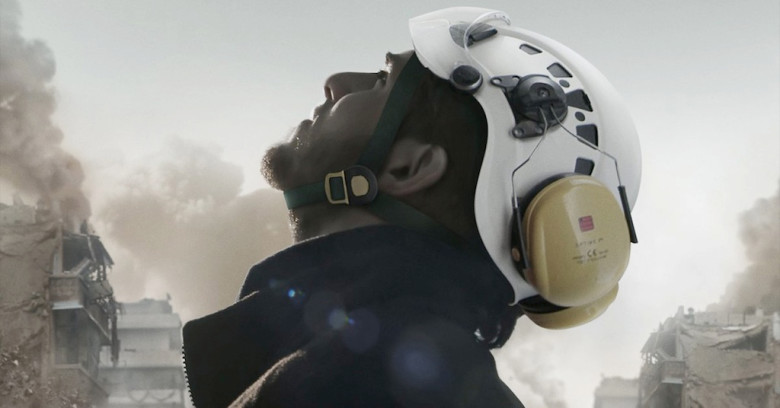Maybe attention spans aren’t dying: Our brave new world of smartphones has done nothing to slay the two-hour movie. If anything, now they’re too short; we prefer endless TV shows we binge for untold hours at a spell. To make a long story short, the masses still haven’t embraced the short film. They still live underground, seen only by festivalgoers and, every February, by the handful who catch the 15 shorts nominated for three categories of Oscars when they’re dumped in movie theaters — a tradition that beckons adventurous patrons or simply those who want a leg-up on their Oscar pools. RELATED: Review: “Kedi” is the Turkish cat documentary that will save us all So, we have good news and bad news. The good news is that half of them are good. The bad news is that half of them are bad. That’s how it always is. You can always rely on the Short Documentary batch to enrich and inspire, just as you can always rely on the Live Action shorts to be goopy puddles of sentimentality or noble duds that simplify the world’s very real problems. (There have been exceptions — perhaps you remember the unbearably intense “Just Before Losing Everything,” from 2014 — but they rarely win the trophy.) Meanwhile, the animated minis are an eternal mixed bag: glorified demo reels for those aspiring for Pixar or Dreamworks cutting it up with true works of vision, usually from Canada. So it goes with the 2017 Academy Awards. Chances are you’ve already seen “Piper,” the cute bird chick short attached to “Finding Dory,” which is more impressive for its photorealistic design than the forgettable funny animal business that happens onscreen. It’s best to ignore the undercooked memory piece “Borrowed Time,” though it’s possible to be over-charmed by “Pearl,” essentially a music video, following a rotoscoped dad and his growing daughter over the years and shot (almost) entirely within a hatchback. The two stunners include “Pear Cider and Cigarettes,” a lengthy, grouchy, shape-shifting memoir about a friend of the author, whose self-destruction doesn’t let up even after a carousing life dumps him in China with a failing liver. It has ambition to burn, but it’s still got little on the simple “Blind Vaysha,” the token entry from the eternally bountiful National Film Board of Canada. Rough, scratchy and richly textured, it tells of a girl born with the strangest of eyes: one sees the past while the other sees the future. Sometimes the screen splits in two, showing, say, a little kid on the left, a crotchety old-timer on the right. It looks like nothing else in the world — so, of course, our money is on “Piper” for the gold. The Live Action quintet are a depressing lot, and not because most of them tackle grim subject matter. It’s that they do so with such little imagination or insight. The most tolerable is “La Femme et le TGV,” and that’s mostly because it stars Jane Birkin. The goddess plays a lonely, intransigent, small town French woman whose only friend she’s never met: the conductor of a train that passes daily by her remote bungalow. Birkin is sweet and sour, but the film is a straight-arrow souffle that does not deserve her. The Hungarian “Sing” presents evil teachers who are easily defeated. Even the “cute one” — Spain’s “Timecode,” about bored car park attendants — is nothing but cute. Meanwhile, when things get really dark, they still seem too basic. “Ennemis Interieurs” is a 101 on France’s equivalent of America’s “Muslim ban,” complicated, and only slightly, by the fact that the interrogator is an Algerian doing his country’s heartless bidding. “Silent Nights” is a thumb-twiddingly by-the-books refugee-abroad expose, which may nab the trophy for relevance, not artistry. For no clearer sign of how films like “Ennemis Interieurs” and “Silent Nights” stack up next to the real deal, go see the five nominated for Best Documentary Short. The quintet tackle the refugee crisis (“4.1 Miles,” “Watani: My Homeland”), the Holocaust (“Joe’s Violin”), hospitals (“Extremis”) and Syria (“The White Helmets,” also “Watani”). They aren’t just vomiting out facts. They put faces on suffering we hear on the news if at all, about people in some cases directly affected by our inaction and/or indifference. They’re told with you-are-there immediacy or, in the case of “Extremis,” Frederick Wiseman-esque detachment. And you’ll emerge from these three hours with a better understanding of the world than our current commander-in-chief. (Oh, and if we’d have to guess the night’s winner, we’d go with either “4.1 Miles — a concise tear-jerker about Greek civilians who take it upon themselves to rescue refugees from rickety boats — or “Watani,” which would shame anyone who assumes refugees are sneaking into the first world to blow it up, provided they actually watch it.)
Your guide to the Oscar-nominated shorts to help with your Oscar pool

Academy Awards
Follow Matt Prigge on Twitter @mattprigge


















